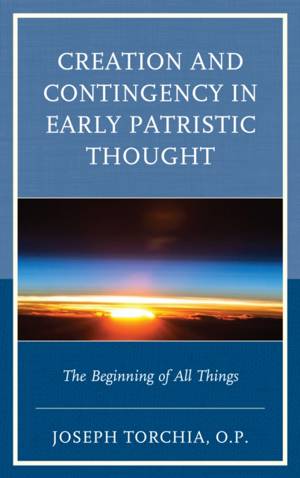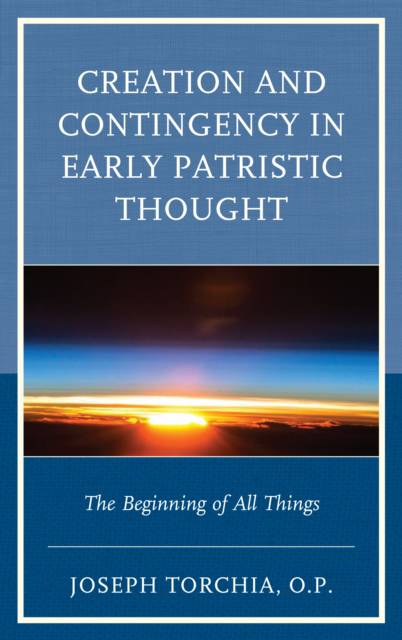
- Afhalen na 1 uur in een winkel met voorraad
- Gratis thuislevering in België vanaf € 30
- Ruim aanbod met 7 miljoen producten
- Afhalen na 1 uur in een winkel met voorraad
- Gratis thuislevering in België vanaf € 30
- Ruim aanbod met 7 miljoen producten
Zoeken
Creation and Contingency in Early Patristic Thought
The Beginning of All Things
Op
Paperback | Engels
€ 83,45
+ 166 punten
Uitvoering
Omschrijving
Creation and Contingency in Early Patristic Thought: The Beginning of All Things explores the interface between philosophy and theology in the development of the seminal Christian doctrine of creation ex nihilo. While its main focus lies in an analysis of first to third century patristic accounts of creation, it is likewise attuned to their parallelism with Middle Platonic commentaries on Plato's theory of cosmological origins in the Timaeus. Just as Christian thinkers sounded out the theological implications of Gn 1:1-2, the successors to Plato's Academy debated the significance of his teaching (Tim. 28b) that the world "came to be." The fact that both Genesis and the Timaeus address the "beginning of all things" served as a means of bridging the conceptual gap between the Greek philosophical tradition and a Christian perspective rooted in scriptural teaching. Plato's Timaeus and the doxographies it inspired thus provided early Fathers of the Church with the dialectical resources for explicating their distinctive understanding of creation as a bringing into being from nothing.
Specificaties
Betrokkenen
- Auteur(s):
- Uitgeverij:
Inhoud
- Aantal bladzijden:
- 264
- Taal:
- Engels
Eigenschappen
- Productcode (EAN):
- 9781498562836
- Verschijningsdatum:
- 28/09/2020
- Uitvoering:
- Paperback
- Formaat:
- Trade paperback (VS)
- Afmetingen:
- 152 mm x 229 mm
- Gewicht:
- 390 g

Alleen bij Standaard Boekhandel
+ 166 punten op je klantenkaart van Standaard Boekhandel
Beoordelingen
We publiceren alleen reviews die voldoen aan de voorwaarden voor reviews. Bekijk onze voorwaarden voor reviews.








